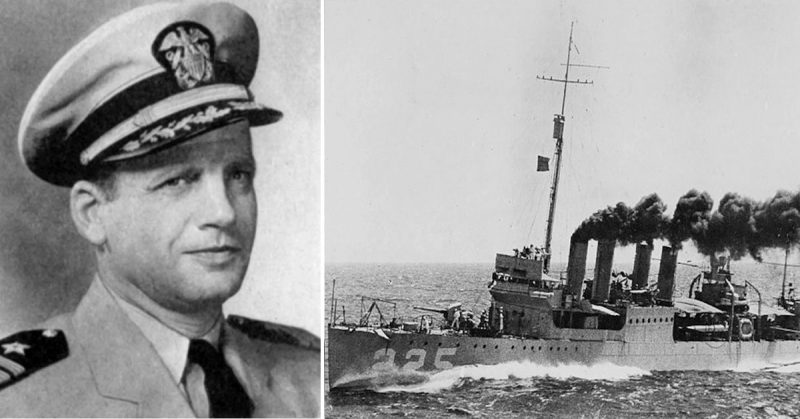War often brings out the very worst in human beings, but it can also bring out the very best. While prisoner of war (POW) camps have had a notorious reputation throughout history as being places in which some of the worst acts of cruelty have been committed by one group of men against another, they are also places in which extraordinary acts of selfless heroism and compassion have taken place.
One such act was performed by Rear Admiral Richard Antrim, who was the only American serviceman in World War II to be awarded the Medal of Honor for an act of valor performed in a prison camp.
Antrim, a native of Indiana, graduated from the Naval Academy in 1931 and served on a number of tours of sea duty from that point onward. By the time WWII broke out in 1939 he was a lieutenant, serving as the Executive Officer of the destroyer USS Pope. Antrim remained in this position until the US joined the war in 1941.
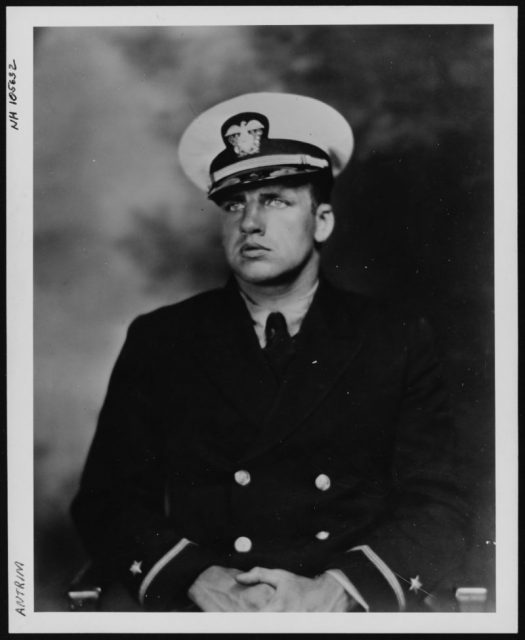
Pope participated in three major naval battles in the Pacific theater of war, all of which took place in early 1942. These were the Battle of Balikpapan, the Battle of Badung Strait, and the Battle of the Java Sea.
In the Battle of Balikpapan, Pope and a fleet of other Allied ships sailed close to the shore of Balikpapan, an important oil-producing port on the coast of Borneo which had been captured by the Japanese, and fired on Japanese transport and combat ships.
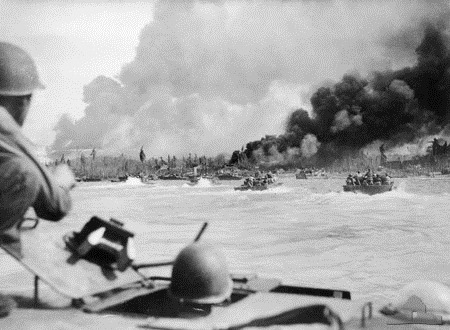
In the Battle of Badung Strait, the Imperial Japanese Navy defeated the Allied fleet, which was forced to retreat. Antrim performed admirably in the action, receiving the Navy Cross and a recommendation for a destroyer command.
After the Battle of the Java Sea – a disastrous defeat of the Allies by the Japanese – Pope‘s luck finally ran out. Pope and two British ships attempted to flee as the Imperial fleet surrounded the island of Java.
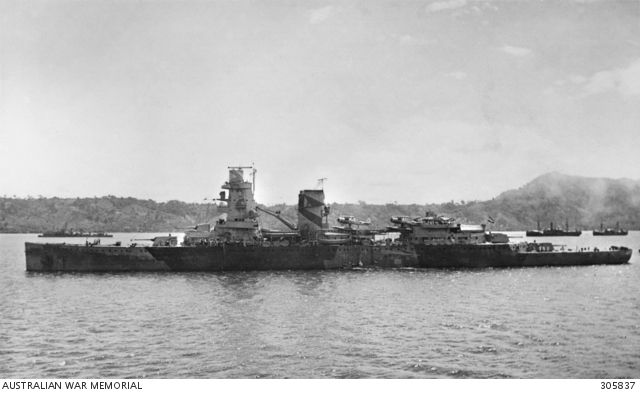
The Japanese spotted the ships on March 1, 1942, and while the two Royal Navy ships were sunk soon afterward, Pope managed to slip away under cover of a squall. However, it was later spotted again by Japanese bombers and promptly sunk.
While the ship was sinking, even though Antrim had been wounded, he managed to keep a cool head and got all of his crew into lifeboats, which he kept close to his own whale boat once Pope went under. He made sure all of the life rafts stayed within sight of his whale boat, so that whatever meager rations they had could be shared with everyone.
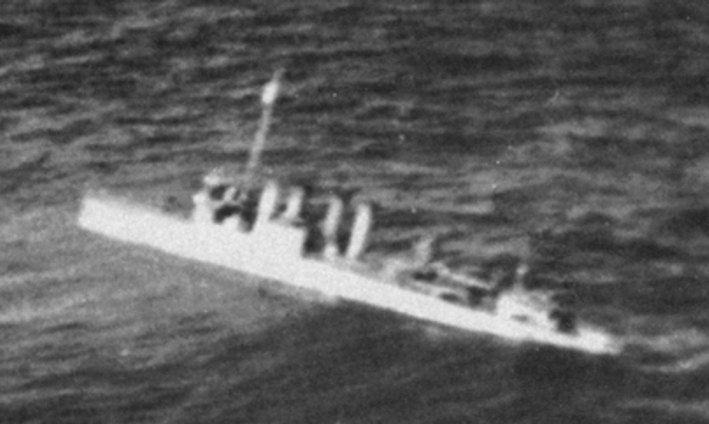
For three days and nights he and his men were adrift on the open sea. Finally, they were spotted – but not by friendly eyes. The men were picked up by a Japanese warship and promptly delivered to a POW camp at Makassar, in the Celebes Islands.
It was at Makassar that Antrim would perform the act that would distinguish him with the only Medal of Honor awarded to an American serviceman for an action in a prison camp in WWII.
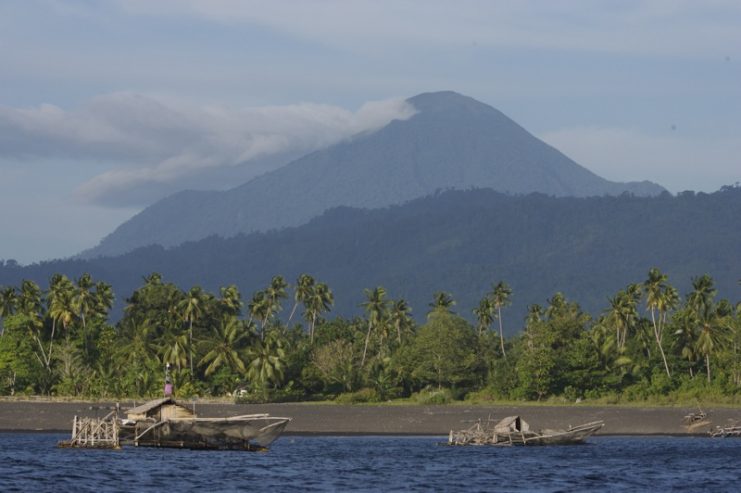
Japanese POW camps were notorious for acts of brutality committed by the guards against Allied prisoners, and the camp at Makassar was no different in this regard.
One day, a particularly vicious guard started brutally beating one of the prisoners, LTJG Allan Fisher, with a length of thick cable. Seeing that the beating was likely to end in Fisher’s death, Antrim decided he had to intervene.
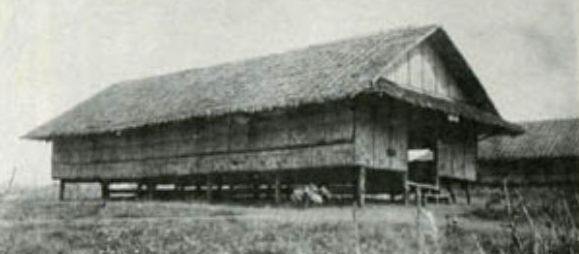
He asked the other guards what was going on, and was told that the man had committed some sort of minor infraction and was being punished.
Instead of arguing with the guards, Antrim courageously volunteered to take the prisoner’s place, and to thus take the rest of the man’s beating himself.
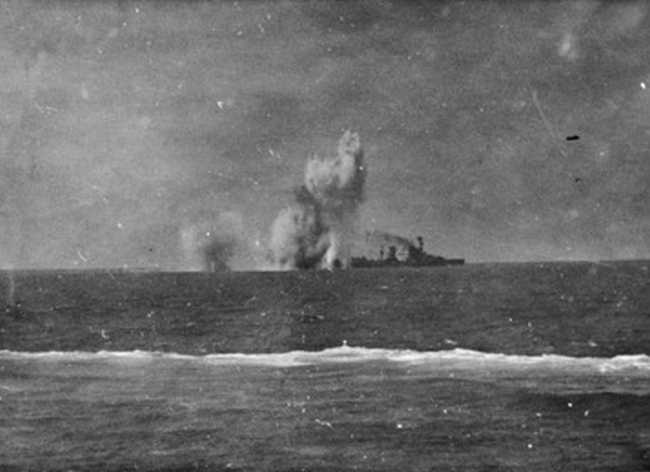
This extraordinary act of selfless bravery not only saved the prisoner’s life, but it also impressed the Japanese guards. Indeed, the Japanese were so impressed by Antrim’s act of self-sacrifice that they made an effort to improve the food and conditions in the camp.
Antrim did not stop taking risks, though. He always put the welfare of his men first, and he performed another daring act in the camp later, that again was done at great risk to his own life.
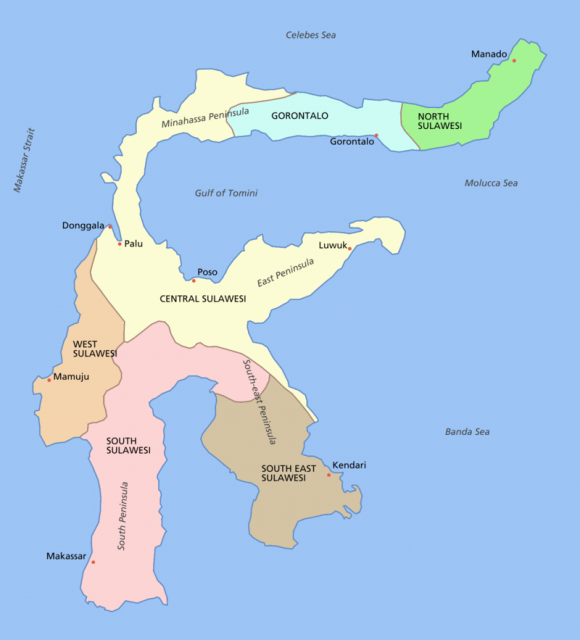
When the Japanese forced the prisoners to dig slit trenches to mitigate the threat of Allied planes dropping bombs on the camp, Antrim volunteered to lead the work detail.
Unbeknownst to his captors, he instructed the men to dig the trenches in a shape that would read “US” when seen from directly above – a smart move that protected the prison camp from being mistakenly bombed.
It was also a ploy that would have resulted in his being beheaded if the Japanese discovered what he had done. Thankfully, he and his men got away with it, and the camp was never bombed.
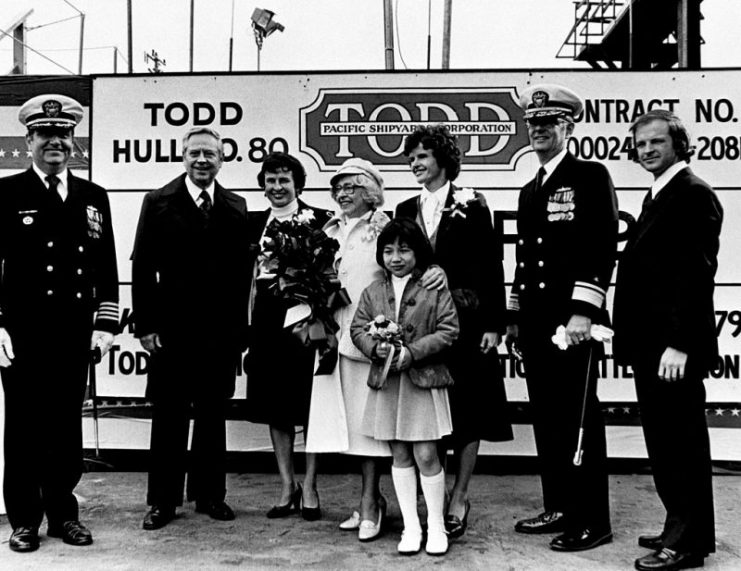
After the Allied victory in 1945, Antrim and his men were finally able to return home.
President Harry Truman presented Antrim with the Medal of Honor for saving a fellow prisoner’s life in the camp by virtue of his selfless courage, and Truman also presented him with the Bronze Star for his ingenious plan with the shape of the trenches.
Richard Antrim retired from the Navy as a rear admiral in 1954, and after his retirement frequently spoke at public events, urging Americans to fight poverty, violence and crime. He passed away in 1969, and in 1979 the guided missile frigate USS Antrim was named in his honor.
